 W
WThis list of biology awards is an index to articles about notable awards for biology, the natural science that studies life and living organisms, including their physical structure, chemical processes, molecular interactions, physiological mechanisms, development and evolution. It includes a general list and lists of ecology, genetics and neuroscience awards. It excludes awards for biochemistry, biomedical science, medicine, ornithology and paleontology, which are covered by separate lists.
 W
WAsa Gray is considered the most important American botanist of the 19th century. His Darwiniana was considered an important explanation of how religion and science were not necessarily mutually exclusive. Gray was adamant that a genetic connection must exist between all members of a species. He was also strongly opposed to the ideas of hybridization within one generation and special creation in the sense of its not allowing for evolution. He was a strong supporter of Darwin, although Gray's theistic evolution was guided by a Creator.
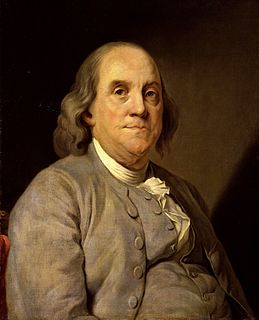 W
WThe Benjamin Franklin Award is an annual award for Open Access in the Life Sciences presented by Bioinformatics.org to an individual who has, in his or her practice, promoted free and open access to the materials and methods used in the life sciences.
 W
WThe Beverton Medal is a prestigious. international fish biology and/or fisheries science prize awarded annually. It is awarded to a distinguished scientist for a lifelong contribution to all aspects of the study of fish biology and/or fisheries science, with a focus on ground-breaking research. The medal was established as the highest award of the Fisheries Society of the British Isles (FSBI) to recognize distinction in the field of fish biology and fisheries science, to raise the profile of the discipline and of the Society in the wider scientific community. Medals are awarded to individuals who have made an outstanding contribution to fish biology and/or fisheries. The Beverton Medal is traditionally awarded in July at the Fisheries Society of the British Isles annual international conference.
 W
WThe Clarke Medal is awarded by the Royal Society of New South Wales, the oldest learned society in Australia and the Southern Hemisphere, for distinguished work in the Natural sciences.
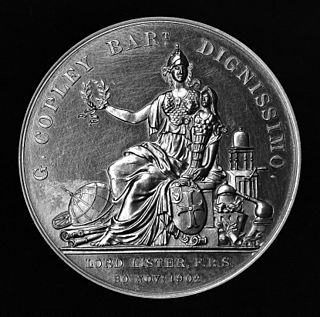 W
WThe Copley Medal is an award given by the Royal Society, for "outstanding achievements in research in any branch of science". It alternates between the physical sciences or mathematics and the biological sciences. Given every year, the medal is the oldest Royal Society medal awarded and the oldest surviving scientific award in the world, having first been given in 1731 to Stephen Gray, for "his new Electrical Experiments: – as an encouragement to him for the readiness he has always shown in obliging the Society with his discoveries and improvements in this part of Natural Knowledge".
 W
WThe Darwin Medal is awarded by the Royal Society every alternate year for "work of acknowledged distinction in the broad area of biology in which Charles Darwin worked, notably in evolution, population biology, organismal biology and biological diversity". First awarded in 1890, it was created in memory of Charles Darwin and is presented with a £2000 prize.
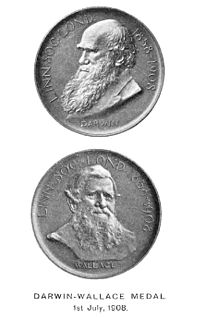 W
WThe Darwin–Wallace Medal is a medal awarded by the Linnean Society of London for "major advances in evolutionary biology". Historically, the medals have been awarded every 50 years, beginning in 1908. That year marked 50 years after the joint presentation by Charles Darwin and Alfred Russel Wallace of two scientific papers—On the Tendency of Species to form Varieties; and on the Perpetuation of Varieties and Species by Natural Means of Selection—to the Linnean Society of London on 1 July 1858. Fittingly, Wallace was one of the first recipients of the medal, in his case it was, exceptionally, in gold, rather than the silver version presented in the six other initial awards. However, in 2008 the Linnean Society announced that due to the continuing importance of evolutionary research, the medal will be awarded on an annual basis beginning in 2010.
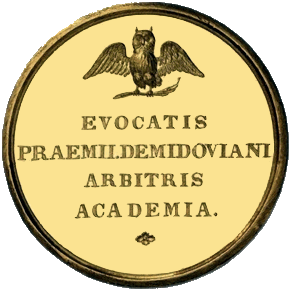 W
WThe Demidov Prize is a national scientific prize in Russia awarded annually to the members of the Russian Academy of Sciences. Originally awarded from 1832 to 1866 in the Russian Empire, it was revived by the government of Russia's Sverdlovsk Oblast in 1993. In its original incarnation it was one of the first annual scientific awards, and its traditions influenced other awards of this kind including the Nobel Prize.
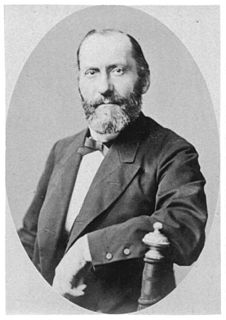 W
WThe Ernst Schering Prize is awarded annually by the Ernst Schering Foundation for especially outstanding basic research in the fields of medicine, biology or chemistry anywhere in the world. Established in 1991 by the Ernst Schering Research Foundation, and named after the German apothecary and industrialist, Ernst Christian Friedrich Schering, who founded the Schering Corporation, the prize is now worth €50,000.
 W
WThe Carlos J. Finlay Prize is a biennial scientific prize sponsored by the Government of Cuba and awarded since 1980 by the United Nations Educational, Scientific and Cultural Organization (UNESCO) to people or organizations for their outstanding contributions to microbiology and its applications. Winners receive a grant of $5,000 USD donated by the Government of Cuba and an Albert Einstein Silver Medal from UNESCO.
 W
WThe FSBI Medal is an international fish biology and/or fisheries science prize awarded annually for exceptional advances by a scientist in the earlier stages of his or her career. Medallists have made a significant contribution to the field of fish biology through their achievements in scientific research. The medal is only awarded if a candidate of sufficient quality is nominated. The medal was established by the Fisheries Society of the British Isles (FSBI) to recognize distinction in the field of fish biology and fisheries science and to raise the profile of the discipline and of the Society in the wider scientific community. Medals are awarded to individuals who have made an outstanding contribution to fish biology and/or fisheries. The FSBI Medal is traditionally awarded in July at the Fisheries Society of the British Isles annual international conference.
 W
WThe Indianapolis Prize is a biennial prize awarded by the Indianapolis Zoo to individuals for "extraordinary contributions to conservation efforts" affecting one or more animal species.
 W
WThe International Biology Olympiad (IBO) is a biological olympiad for pre-university students under the age 20, and is one of the most well-known International Science Olympiads. The first IBO was held in Czechoslovakia in 1990, and it has since been held annually. The competition have gradually expanded to include more than 75 countries participating countries across five continents. All participating countries send the four winners of their National Biology Olympiad to the IBO, usually accompanied by two adults who are members of the international jury for the duration of the competition.
 W
WThe Kyoto Prize in Basic Sciences is awarded once a year by the Inamori Foundation. The Prize is one of three Kyoto Prize categories; the others are the Kyoto Prize in Advanced Technology and the Kyoto Prize in Arts and Philosophy. The first Kyoto Prize in Basic Sciences was awarded to Claude Elwood Shannon, the “Establishment of Mathematical Foundation of Information Theory”. The Prize is widely regarded as the most prestigious award available in fields which are traditionally not honored with a Nobel Prize.
 W
WThe Linnean Medal of the Linnean Society of London was established in 1888, and is awarded annually to alternately a botanist or a zoologist or to one of each in the same year. The medal was of gold until 1976, and is for the preceding years often referred to as "the Gold Medal of the Linnean Society", not to be confused with the official Linnean Gold Medal which is seldom awarded.
 W
WThe Linnean Tercentenary Medal was commissioned in 2007 by the Linnean Society to commemorate the tercentenary of the birth of Carl Linnaeus. Recipients were in two categories: Silver Medal and Bronze Medal, for outstanding contributions to natural history.
 W
WThe Macfarlane Burnet Medal and Lecture is a biennial award given by the Australian Academy of Science to recognise outstanding scientific research in the biological sciences.
 W
WThe Pearl Meister Greengard Prize is an award for women scientists in biology given annually by the Rockefeller University.
 W
WThe Royal Botanic Garden Edinburgh (RBGE) is a scientific centre for the study of plants, their diversity and conservation, as well as a popular tourist attraction. Founded in 1670 as a physic garden to grow medicinal plants, today it occupies four sites across Scotland—Edinburgh, Dawyck, Logan and Benmore—each with its own specialist collection. The RBGE's living collection consists of more than 13,302 plant species, whilst the herbarium contains in excess of 3 million preserved specimens.